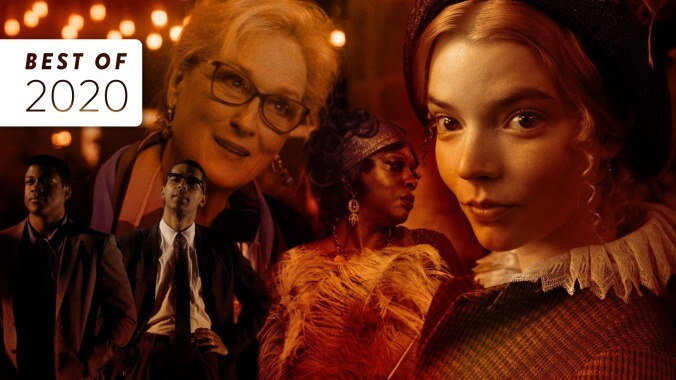What films should’ve made our best of 2020 list?

Clockwise from upper left: Let Them All Talk (Photo: HBO Max), Emma. (Photo: Focus Features), Ma Rainey’s Black Bottom (Photo: David Lee), One Night In Miami… (Photo: Amazon Studios) Graphic: Jimmy Hasse
We published our list of the best films of 2020 earlier this week. Of course, we stand by our choices, but we’re not so naïve as to think our list would please everyone. Which is why we’re asking:
What film should’ve made our best of 2020 list?
Join the discussion...